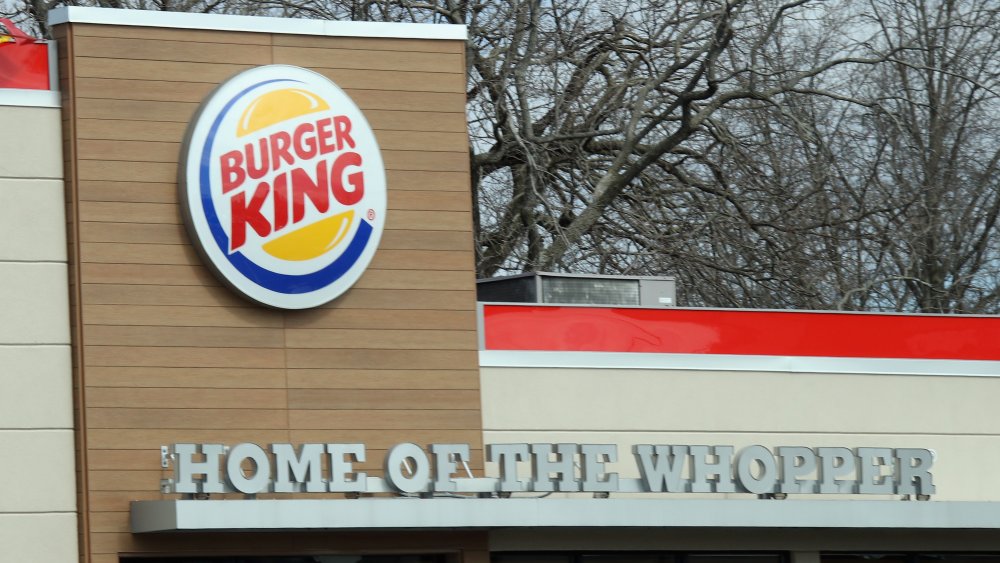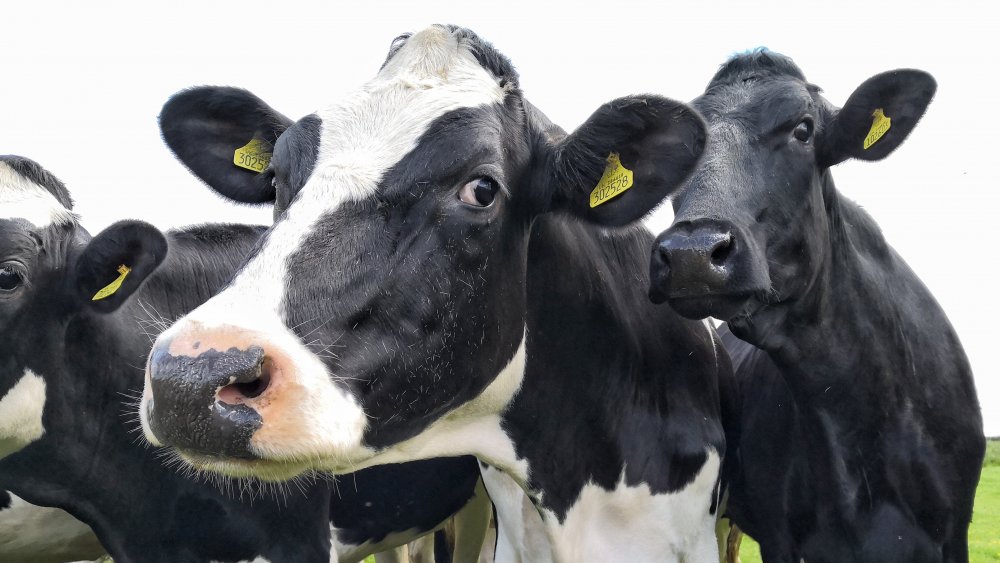The Real Reason Burger King Is Putting Some Of Their Cows On A Diet
Everybody knows that climate change is one of the most serious crises our planet is facing these days. What nobody seems to know is exactly where to put the blame. While some may be partial to the theory that hot air from politicians, particularly in an election year, is pushing us close to the brink, there is a certain amount of evidence demonstrating that methane emissions coming from cattle are another significant contributor to global warming.
Okay, so maybe Gassy Bossy isn't entirely to blame for the state of the climate today — Medium points out that livestock actually contributes only a tiny fraction of all greenhouse gas emissions, and that the worst culprit is still fossil fuels. While the fast food industry can't do much to address the latter issue (except, perhaps, install a walk-up window for pedestrian orders?), one major chain, at least, is doing its best to tackle the global dilemma of farting cows.
Burger King's strategy to reduce cow farts
According to CNN Business, Burger King will begin adding lemongrass to the diets of cattle used to produce some of its beef. Evidently, lemongrass helps them release less methane while digesting the feed, and can reduce emissions by up to 33 percent. (From the cattle, that is. No word on whether this effects emissions further up the food chain, from those who've consumed the beef.) Their new formula is one they've worked on with professors from the University of California, Davis and Autonomous University at the State of Mexico, but it's hardly top-secret. In fact, Fernando Machado, global chief marketing officer for Restaurant Brands International, released a statement saying, "If the whole industry, from farmers, meat suppliers, and other brands join us, we can increase scale and collectively help reduce methane emissions that affect climate change."
At this point, however, even Burger King is only making this change on a limited level. Low-fart Whoppers will only be available in select cities, those being Austin, Los Angeles, Miami, New York, and Portland. The rest of us get burgers made from the same old wind-breaking bovines. Still, it's a unique marketing campaign, to be sure, taking a bold stance against bovine bottom burps, but we'd expect no less from the folks who brought us the infamous moldy Whopper. Burger King, defender of the environment... sure, why not?

